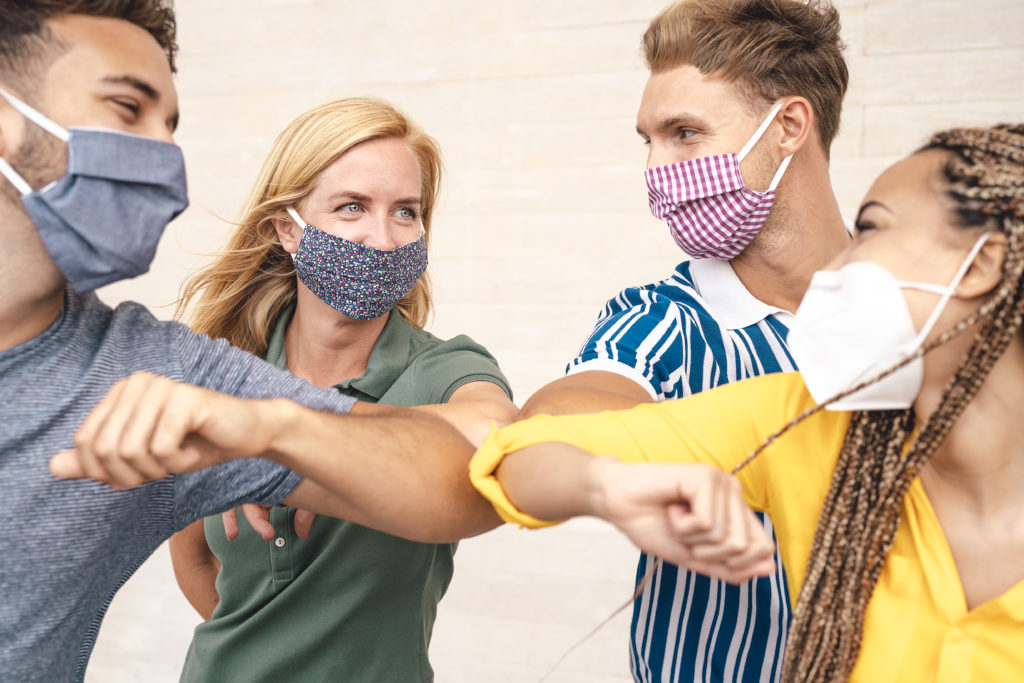Lockdown’s hard for everyone. But a university lockdown can be especially challenging.

This might be your first time away from home. You’ve likely been planning and looking forward to it for years. This was supposed to be the start of an exciting new chapter in your life. You were supposed to be making new friends, learning new things, and generally living the rich, independent life you’ve always dreamed of.
But if your university’s under lockdown, it’s not like this at all. Instead, you’re stuck in an unfamiliar room in an unfamiliar city full of strangers. It may be scary and frustrating.
So the first thing you should know is: Of course you’re going to feel unsettled right now. It’s perfectly natural and perfectly understandable. And you’re not alone in this. Many people are in the same boat as you.
How to Look After Your Mental Health at University
So what can you do, to look after your mental health and wellbeing during lockdown and enjoy your time at university?
Here are a few things you could try. They’re not going to fix the situation overnight. But they might make things a little more bearable, in both the short-term and the long-term.
- Only Check The News Once Each Day
Right now, the news can be a little scary. But some news sources seem determined to make things even scarier than they might truly be.
You need to stay informed. But you don’t need to spend hours every day reading countless articles from multiple sources, each gloomier and more hysterical than the last.
So only check the news once each day – perhaps first thing in the morning. Stick to reliable news sources, rather than those that sensationalise. Scan the headlines, learn what’s going on, then move on.
2. Limit Your Time on Social Media
Have you heard of doomscrolling? That’s where you fall into a dark and unhealthy spiral on social media, endlessly scrolling through thousands of posts all proclaiming that things are bad, and getting worse.
So how can you avoid doomscrolling? It’s simple: Just never use social media for the sake of it. Never go online simply because you’re bored and you’ve nothing better to do. Limit your time, and the moment you find yourself feeling overwhelmed, log off and do something else.
We’re not talking about all social media, of course. If you’re using social media to keep in touch with your friends and family, then it could be an essential lifeline for you. But beyond chatting to friends and family, aim to spend as little time as possible on social media.
3. Fresh Air, Exercise, Healthy Food
Any kind of physical activity is good for your mind.
The lockdown restrictions in your area and in your university might put limits on the amount of time you can spend outside. But whatever your personal circumstances, aim to spend as much time as you can each day, outdoors and exercising.
And the restrictions on meeting and mixing are a lot less restrictive outdoors than indoors. While you can’t meet your friends at the pub, you may still be able to meet them for a walk in a park.
When it comes to food, don’t eat too much fast food or “comfort food”, and don’t drink too much alcohol. Eat as many fresh fruits and vegetables as you can and drink lots of water. The very process of cooking a meal from scratch can be immensely therapeutic. And if you’ve never cooked for yourself before, there’s no better time to learn!
4. Focus on Your Studies
Remember: As bad as things might seem right now, they will get better.
Focus on your studies, and you won’t just be taking your mind off this stressful and scary situation. You’ll also be preparing for your future, actively investing in the life you intend to lead once you leave university.
What made you choose the subject you’re taking at university? On one level, it must be because you’re genuinely interested in the subject. So why not immerse yourself in what fascinates you? It’ll remind you that there’s a whole world out there, full of interesting things and interesting people. And one day, very soon, you’ll be able to join this world again.
5. Don’t Be Afraid to Ask For Help
Arrange virtual meetups with your friends and family. If you’re feeling bad, tell them you’re feeling bad. It’s very likely they’ll feel the same as you. And you’d be amazed at how much better you’ll feel after talking about these things.
But if things feel truly hopeless, and if you don’t feel like you have anyone to turn to, there are still people you can talk to.
Many therapists and counsellors are offering support through online video calls, email, text, and WhatsApp. You can find one near you at this reliable counsellor and therapist directory.
If you’re under 25, you can also get free telephone counselling from The Mix, a charity that specialises in supporting young people. Just fill in this online form and they’ll get in touch. But if you feel like you need urgent help, they also have a Crisis Messenger service. Head here for more information.



